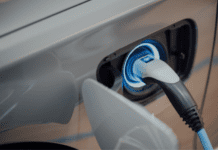New data reveals that auto sales in the United States will likely drop in January because of the low inventory of cars currently available for purchase, as well as the high prices of automobiles that have kept many consumers away from purchasing a new car. Manufacturing of cars has also fallen in the last month because of the ongoing spread of the Omicron variant of the coronavirus, a highly contagious variant that has forced many factories to momentarily shut down because of COVID-19 outbreaks among workers. The ongoing global supply chain problems, which have kept some materials limited for factories, and high inflation has also kept inventories low and consumers wary of splurging on a new car.
This new data suggests that sales could fall by about 8.3% in January from what was recorded last year, though this data will be confirmed once the month ends and a total of figures is calculated.
While some consumers are wary of buying new cars because of the high price, the overall consumer demand for new cars is still quite high. However, the amount of cars in inventory does not meet this demand, and auto manufacturers have struggled to be able to meet this high demand for months now. In January specifically, it was hard for automakers to make new cars because of Omicron outbreaks in factories and warehouses. The Omicron variant also caused the global supply chain to slow down even more in the past month as workers quickly become infected with the high contagious variant. This has caused even more bottlenecks in the chain, which has then impacted how automakers were able to make new cars.
These bottlenecks and issues have also caused certain things to rise in price, such as a rise in the price of items and delivery services, much as prices rose last year when the COVID-19 pandemic began to infect workers in a large amount. As consumer demand is still quite strong — in the auto industry and in most other industries — businesses are willing to spend more money in order to get parts and materials to their factories. However, this, in turn, raises the price of cars for consumers, and that does impact how much consumers end up spending for cars, if they decide to buy a higher-priced one or not.
New data previously came out that suggested that while consumer confidence remains high, it has fallen in January. This data also explains that consumers are not interested in buying any big items, or expensive items, any time soon — for example, they will not buy cars, washing machines, or any big-ticket items. However, this data also suggests that while consumers are not interested in buying these items right now, they will in the next six months.
When it comes to the auto industry, this seems to be good news. While consumer demand for cars is still high, a low inventory and high prices keep consumers away, or from buying new cars. However, in six months, consumers might be more willing to buy a new car — especially if many of these issues affecting the auto industry go away.











